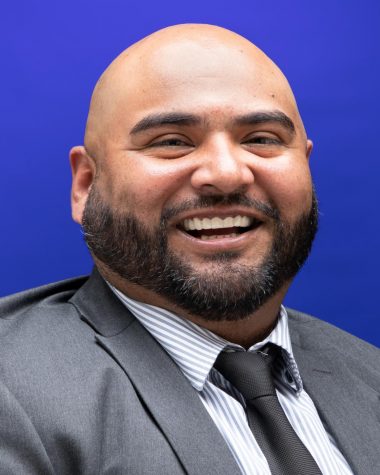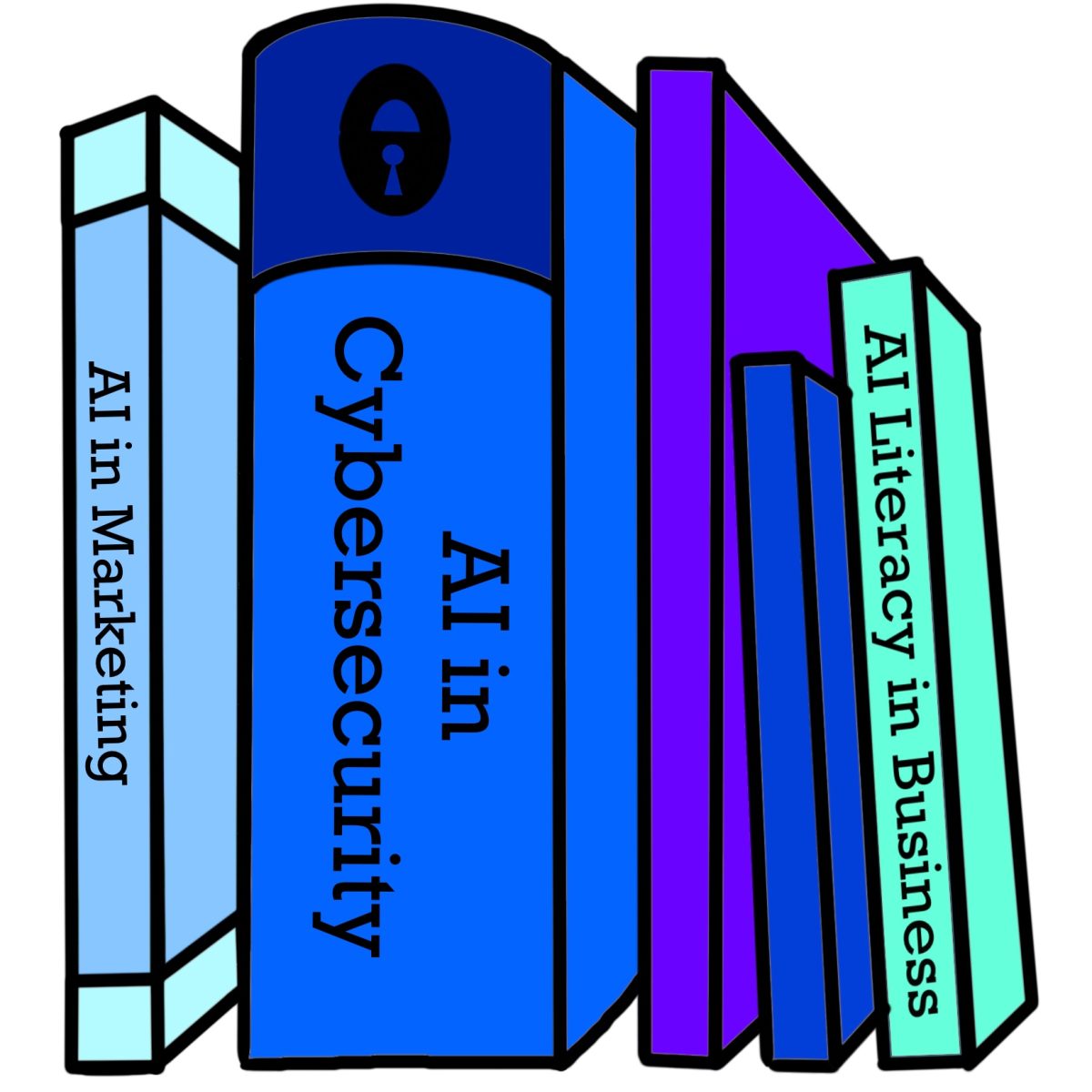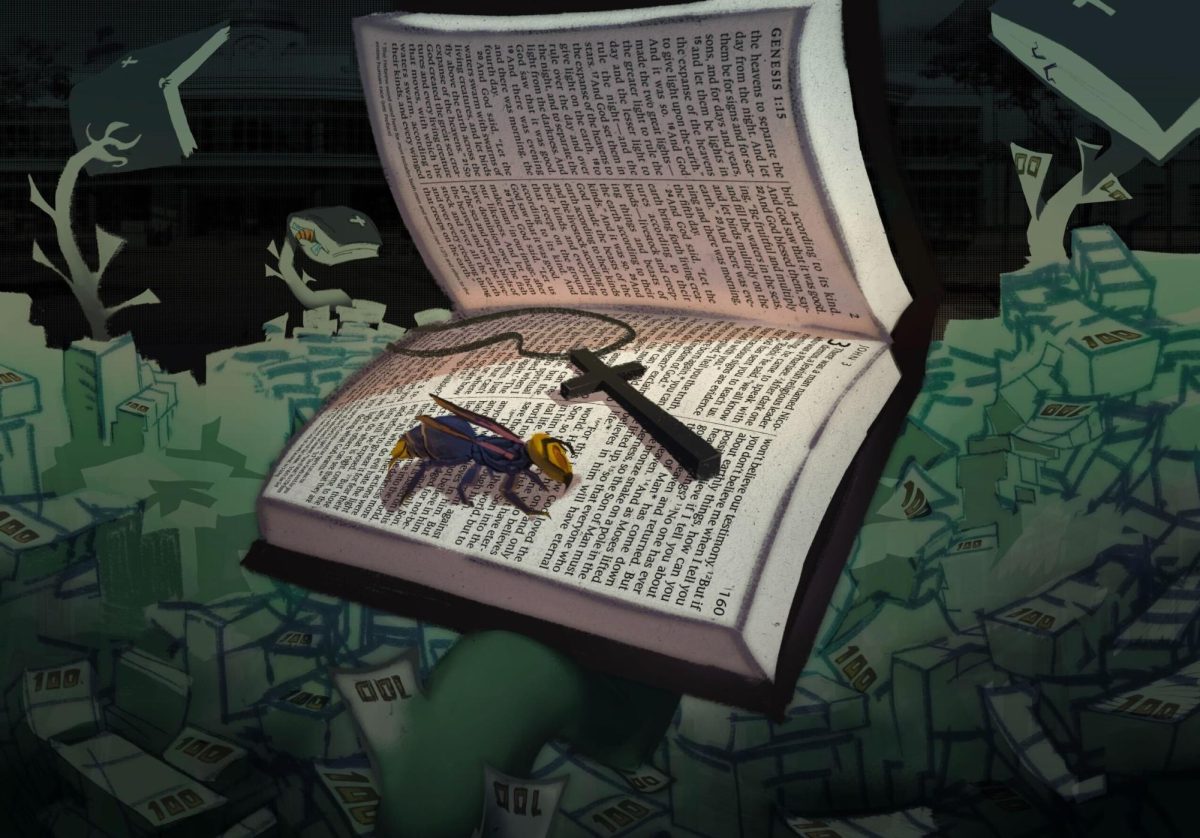NOCCCD hopes to increase enrollment with reduced-cost textbooks program
New textbook program proposed for fall 2023 claims to lower book costs for students, but many are against it. Photo credit: Gerardo Chagolla
May 16, 2023
That cost of textbooks is the latest challenge that newly appointed Fullerton College President Cynthia Olivo is taking on.
Olivo, along with Cypress College President JoAnna Schilling and NOCE President Valentina Purtell, are proposing a textbook program to roll out fall 2023 that claims to lower book costs for students. They argue that having lower textbooks costs would increase enrollment at all colleges.
But, at the May 2 Faculty Senate meeting, multiple faculty members and Associated Students representative and public relations vice president Fiza Valiulla raised concerns that this program would end up costing some students more money.
Olivo is proposing that Fullerton College join the Follett Access program, which would automatically enroll any student with over nine units in a program to have digital copies of their textbooks available through their Canvas course pages. Follett is the company that took over the Fullerton College bookstore in November 2021.
There would be a set per-unit fee for these students, so that they would just pay an upfront cost instead of having to find and buy each individual textbook for their classes. Olivo says this will save students from having to pay hundreds of dollars for textbooks.
“What we’re interested in doing is having a service that’s available across the district to provide students with low-cost textbooks,” said Olivo. “This is so that we can tell students not only do we provide two years of free tuition, and we also provide meals, but, the other support services we provide are low-cost books for students.”
Olivo said the college would use some of its remaining state Covid-19 relief funding to subsidize the cost to students.
Under the program, all students with at least 9 units will be charged $19 per unit at the beginning of the semester to cover their textbooks. That translates to $171 per semester per student. Students enrolled in 12 units would pay $228 per semester, and students enrolled in 15 units would pay $285 per semester. Students would not be charged for any units above 15.
This fee would give the student access to all assigned textbooks virtually through their Canvas accounts. Students will not be billed until the drop/add period ends, which for fall 2023, is the week starting September 4th.
Olivo says that the college would help subsidize that cost at first. The district has agreed to provide textbook assistance of $100 for each student taking 9 units or more.
Students taking 9 units would pay $71. Students taking 12 units would pay $128, making that the total for all of their books.
Faculty Senator and political science professor Jodi Balma said she is against the program saying that there are cheaper ways for students to get their books.
“Many students have cheaper options for books. Amazon.com, textbook.com, using used books, borrowing books from other students, buying books from other places,” said Balma.
Balma explains that faculty also have tried to lower book prices for students by advocating for OER, or online educational resources, which are free versions of textbooks, and by providing access to primary sources in Canvas.
Olivo shared testimonials with The Hornet from four San Bernardino Valley College students who have benefited from a similar program at their school, called Books Plus. They say that the program has benefited them financially, and that they can use the money usually spent on books on gas, food and helping to support their families.
“One of the most difficult things about going to college is figuring out how I was going to pay for everything and programs like that made it easier to focus on my studies,” said San Bernardino Valley student Alexus Alcantar in press materials provided to The Hornet by Olivo.
Valiulla says some students will end up paying even more than their regular book expenses under this program. “A student that wouldn’t even have to pay $110 in general, would be forced to pay $110 dollars for textbooks that they wouldn’t necessarily need,” said Valiulla.
If a student wishes, Follett gives them the option to opt out of the program. There would be an “opt-out” button on a Canvas portal that they could click. For example, students who are enrolled in EOPS already receive free textbooks, so they could opt out of this program.
Balma disapproves of students having to take action to avoid an undesired fee. “The idea that they would be charged for something if they didn’t proactively take action bothers me,” said Balma.
Students who miss the opt-out deadline and get charged will be able to appeal the fees.
Balma and Valiulla allege that Follett uses this program as a way to ensure profits even if their books are not being purchased, rather than to support students. “This program does not have the student’s best interest at heart,” said Valiulla.
Olivo is aware of concerns from students and faculty. “There’s a lot of worries that Follett is going to take over and make a lot of money off of this,” she said. “I would just say that a lot of publishers right now are making a lot of money off of students already.”
However, President Olivo says the advantages this program gives are worth the expenditure. “This, at least, is a service. Imagine logging into Canvas and your books are already there. That’s actually really cool,” Olivo said.
Olivo suggests the program will grant students with quick accessibility to the material, without needing to go to any store physically or even online. “You don’t have to go to the bookstore, you don’t have to stand in line, you don’t have to search for it online yourself,” she said.
If this program is implemented, students will automatically be enrolled in the program on the day of their class enrollment. However, the district says it would be a one-year pilot, subsidized by the district, as a way to gauge whether the program works for students.
The faculty senate will vote on the proposal at their final meeting of the semester on May 18 at 3 p.m. in rooms 222/224/226/228 of the 200 building. Balma already decided to vote “no” on the proposal. “Unless something radically changes to the current proposal, I will be voting no,” said Balma.
“I would say that maybe 100 faculty have done the work to make their courses open educational resources, OER, with zero-cost textbooks,” said Olivo, adding that hundreds of faculty still have textbook costs associated with their courses.
“This gives us at least the next academic year for faculty to work on that while they see how convenient it is and how much we have to do in order to address the stress of the cost of books from our students.”
***This story has been updated with new information provided to faculty senate on May 16.




















